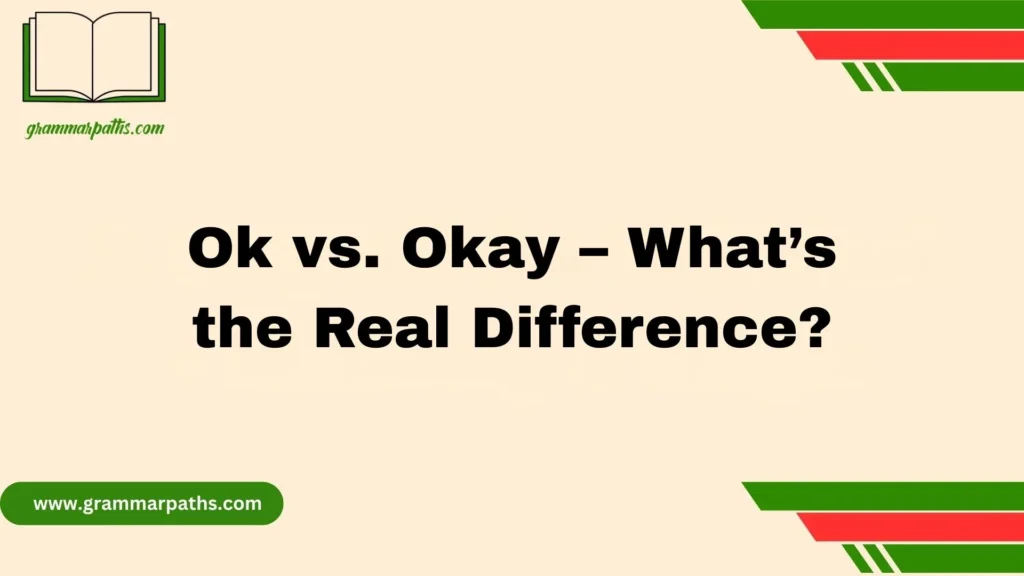When teachers prepare notes for English students, it’s common to see questions in class about spelling like Rancor and Rancour, where a small difference in words creates variations tied to American and British dictionary rules and conventions. This usage reflects identity, language, and subtle shifts that learners notice through examples in texts they live and read. The meanings depend on context, region, culture, history, and geography, showing how change is evolving and why it still matter. These details trace back to Latin root and origin, often seen in published exam papers, guides, or writing style. Understanding the preference is real, natural, and part of a global landscape where every shift or shifts across layers marks distinctions that even now are yet both important. I’ve seen learners who wondered if it’s maybe a wrong form, but every article helps untangle the clear doubts, turning the mystery behind an identical sound into something more than a tiny confusion.
After all, the word denotes resentment, ill-will, and bitter, long-lasting feelings, and the lies are primarily in the variant used—preferred in American, predominantly in British, and while some instance may say one sentence with critics towards it, others typically read the other. Hence, the audience and their dialect decide, showing how words still holds worth, can inspire action, fuel learning, and demand a rethinking approach. From part of my back years teaching abroad in a classroom, a single debate over this spelling highlights a split that was a surprise to many, but it made me realize the important, breathing, living nature of English—exploring its lively, real journey of change.
Rancor vs. Rancour: What’s the Difference?
At its core, there isn’t one. Rancor and rancour mean the same thing:
A deep-seated, long-lasting bitterness, resentment, or hatred toward someone or something.
The only difference lies in spelling:
- Rancor → Standard in American English.
- Rancour → Standard in British English (and countries influenced by it, such as Canada, Australia, and South Africa).
In other words, the choice depends on which version of English you’re using, not on a difference in meaning.
Understanding the Meaning of ‘Rancor’ and ‘Rancour’
To really get a feel for the word, let’s break it down:
- Definition: A bitter, deep-rooted resentment or ill will.
- Type of word: Noun.
- Tone: Strong, formal, often used in serious contexts like politics, law, or literature.
Common Synonyms
- Bitterness
- Hostility
- Animosity
- Malice
- Resentment
Everyday Example
- Positive context: “She accepted his apology without rancor.”
- Negative context: “The rancor between the rival teams spilled over into the game.”
Notice how the word conveys something heavier than a passing irritation. It suggests a lingering hostility, often stretching over time.
Origins and Etymology of ‘Rancor’ and ‘Rancour’
Words in English often come with a fascinating backstory, and this one is no different.
- The term comes from Old French rancor meaning “grudge” or “ill will.
- Going further back, it traces to Latin rancorem, from rancere, meaning “to stink or be rotten.”
That’s right—the word originally connected to the idea of a bad smell or something that had gone sour. Over time, it shifted from physical decay to the metaphorical decay of relationships or feelings.
By the 1200s, “rancor” entered English with its current sense of “long-lasting bitterness.” From there, it followed the typical spelling divergence between American and British English.
Historical Background & Evolution of Spelling
The spelling split between rancor and rancour is part of a much bigger story about English spelling reform.
- In Middle English (1150–1500), spelling wasn’t standardized. You could see rancour, rancor, and even other variants in manuscripts.
- By the 18th century, efforts to standardize spelling took hold in both Britain and the United States.
Noah Webster’s Influence
One man played a massive role in shaping American spelling: Noah Webster, author of An American Dictionary of the English Language (1828).
Webster pushed for simpler spellings:
- honour → honor
- colour → color
- favour → favor
- rancour → rancor
His goal was to make American spelling more logical and distinct from British English. Over time, the American versions became standard across the U.S., while British English held on to the -our forms.
Rancor vs. Rancour in American and British English
American English Preference
In the United States, rancor is the only accepted spelling. You’ll find it in:
- Political commentary: “The debate was filled with rancor.”
- Literature: Writers like Mark Twain and Ernest Hemingway consistently used “rancor.”
- Media and journalism: Major outlets such as The New York Times and The Washington Post stick exclusively to “rancor.”
British English Preference
Across the pond, rancour remains the go-to spelling. You’ll see it in:
- Literature: Authors such as Charles Dickens and Virginia Woolf used “rancour.”
- Modern journalism: Outlets like The Guardian and BBC News follow the British spelling.
- Commonwealth usage: Canada, Australia, and South Africa also favor “rancour,” though American spelling is sometimes creeping in due to globalization and the internet.
Usage in Modern English
How common are the two spellings today?
According to Google Ngram Viewer (a tool that tracks word frequency in published books):
- Rancor dominates in American English.
- Rancour holds steady in British English, though overall usage has declined in recent decades.
Quick Facts
- “Rancor” appears 20–30 times more often in American publications than “rancour.”
- In UK texts, “rancour” still beats “rancor,” but the gap is smaller than it used to be.
- Global English (online writing, international journalism) increasingly favors rancor, since American English is more widely taught and consumed worldwide.
This shows a trend: while both spellings remain correct, “rancor” is slowly becoming more recognizable worldwide.
Examples of ‘Rancor’ and ‘Rancour’ in Sentences
Here’s how each spelling works in real-world writing:
| Variant | Example Sentence | Context |
| Rancor (US) | The rancor between the two candidates was evident throughout the debate. | Political commentary |
| Rancor (US) | He approached the meeting with rancor, unwilling to forgive past mistakes. | Business setting |
| Rancour (UK) | She spoke with surprising calmness, without a trace of rancour. | Literature/academic writing |
| Rancour (UK) | Years of rancour divided the two families, preventing reconciliation. | Journalism |
Why Spelling Differences Matter in English
You might wonder: if both words mean the same thing, why worry about spelling? The answer comes down to audience, credibility, and clarity.
Credibility in Writing
Using the wrong spelling for your audience can make your work look careless. For example:
- Submitting a paper in the U.S. with rancour might be flagged as a typo.
- Publishing in the U.K. with rancor could raise the same issue.
Business and Professional Communication
In business, consistency matters. A company’s documents should stick to one spelling system (American or British) to avoid confusing clients and partners.
Search Engine Optimization (SEO)
Even online, spelling matters:
- American websites will rank for “rancor.”
- British or Commonwealth websites will rank for “rancour.”
If you’re targeting a global audience, “rancor” tends to reach more readers, since American English dominates on the internet.
Quick Reference Table: Rancor vs. Rancour
| Word | Region | Example Sentence | Notes |
| Rancor | USA | The speech was filled with rancor toward his opponent. | Standard U.S. spelling |
| Rancour | UK/Canada/Australia | Despite the betrayal, she held no rancour. | Standard British/Commonwealth spelling |
Case Study: Political Rancor vs. Political Rancour
To see these words in action, let’s look at politics—an arena where bitterness often runs deep.
- In the U.S.: News outlets frequently describe partisan gridlock as “political rancor.” For example, during the 2020 election cycle, The Washington Post ran headlines emphasizing “rancor” in debates.
- In the U.K.: Media prefers “political rancour.” During Brexit negotiations, The Guardian repeatedly highlighted “rancour” in parliamentary disputes.
Same meaning, different spelling—yet each perfectly suited to its audience.
Conclusion
The difference between Rancor and Rancour is really about spelling and preference, not meaning. Both words describe the same feeling of bitter, long-lasting resentment, but Rancor is common in American English, while Rancour is used in British English. This tiny variation highlights how language is always living, breathing, and evolving, shaped by history, culture, and regional identity. For learners, it’s a reminder that small details can carry big lessons about the richness of English.
FAQs
Q1. What does “Rancor” or “Rancour” mean?
Both words mean deep anger, resentment, or ill-will that lasts for a long time.
Q2. Is “Rancor” wrong in British English?
No. It’s not wrong—it’s just not the usual spelling. In Britain, people normally use Rancour.
Q3. Why do American and British spellings differ?
The split comes from history, with American English choosing simpler spellings while British English kept older conventions.
Q4. Which spelling should I use in exams or papers?
Follow the rules of the region or institution. If you’re in the US, write Rancor; in the UK, write Rancour.
Q5. Can both words be used in the same article?
Yes, but it’s better to be consistent. Pick one form depending on your audience’s dialect and stick with it throughout your writing.

Emma Brooke is a passionate language expert and contributor at GrammarPaths.com, where she helps learners navigate the complexities of English grammar, idioms, and effective writing. With a strong academic background and years of teaching experience, Emma excels at turning tricky grammar rules into simple, practical lessons that readers can easily grasp.












